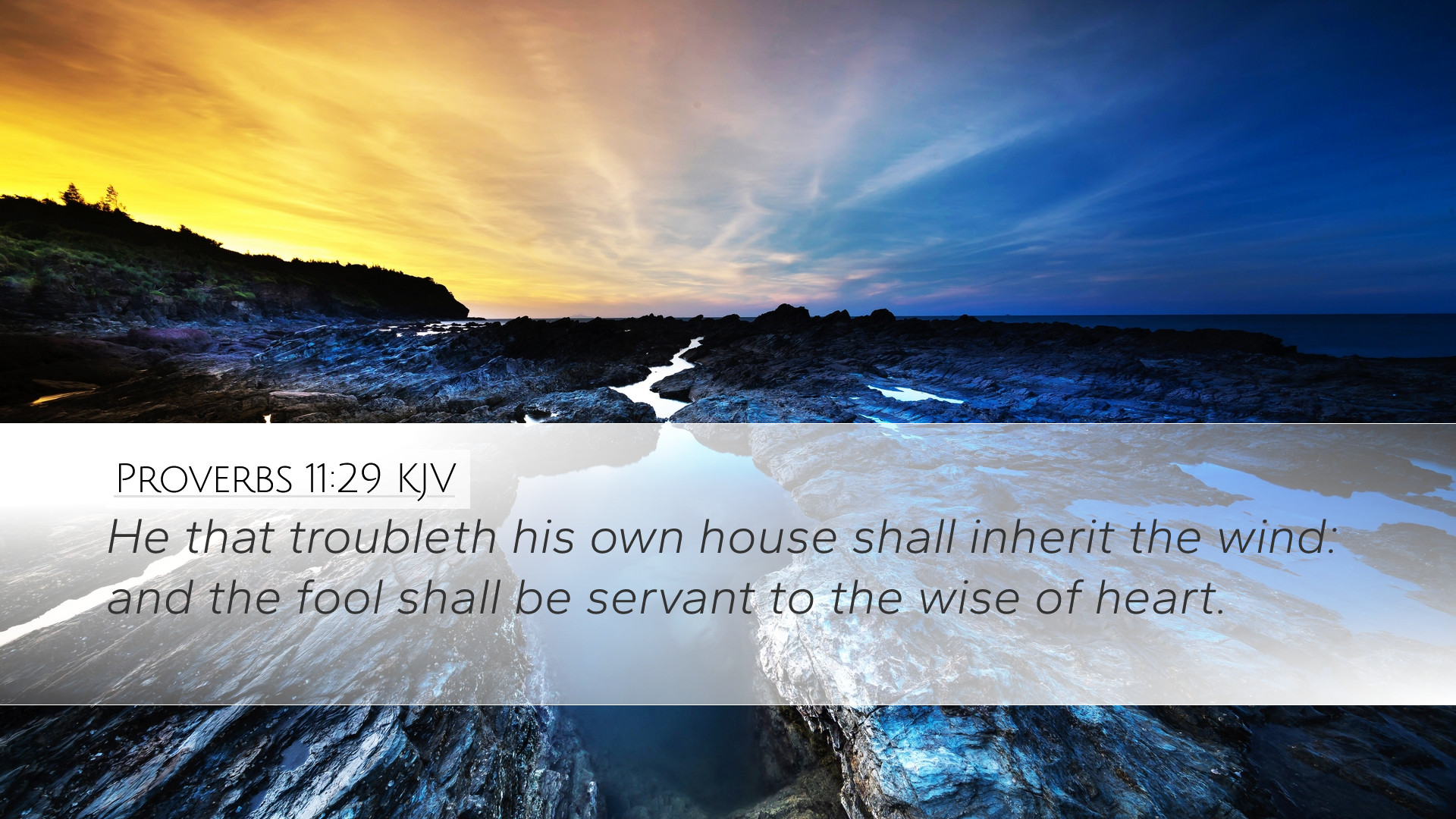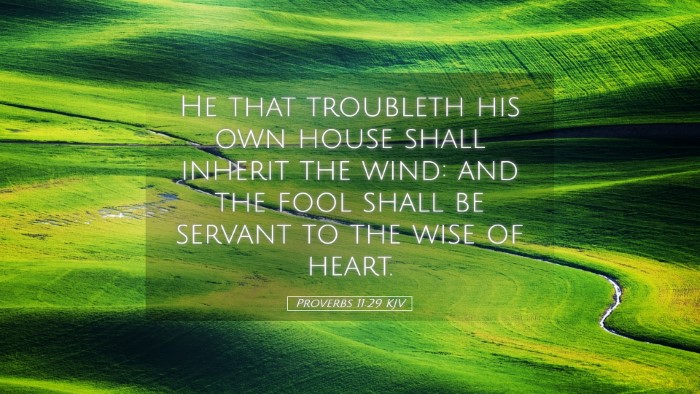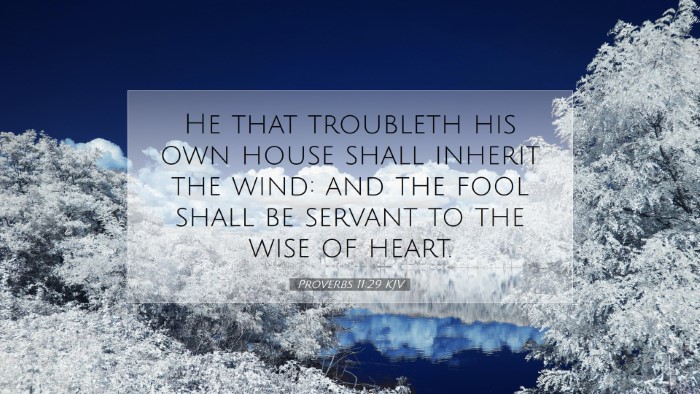Proverbs 11:29 - A Commentary Overview
Verse: “He who troubles his own house will inherit the wind, and the fool will be servant to the wise of heart.”
Contextual Analysis
The book of Proverbs offers timeless wisdom primarily centered around the contrasts between righteousness and folly. Proverbs 11:29 serves as an admonition against causing strife within one’s household and highlights the repercussions of such actions.
In examining this verse, we see the metaphor of "inheriting the wind" suggesting emptiness and futility. The latter part of the verse reflects the inevitable dynamics between the foolish and the wise.
Insights from Matthew Henry
Matthew Henry's Commentary emphasizes that the verse illustrates the outcome of disrupting one’s own family unit through irresponsible actions and decisions. He interprets "inheriting the wind" as a warning against the empty pursuits that come from conflict within the home. Henry contingently reflects on the destructive nature of a contentious spirit.
He also points out that strife leads to a greater state of foolishness instead of wisdom and that such a person ultimately becomes subservient to those who embody true understanding. This cycle illustrates the principle that the consequences of one's actions inevitably lead to serving those who uphold integrity and wisdom.
Insights from Albert Barnes
Albert Barnes' Notes on the Bible elaborates on the character of the person who troubles their household, depicting them as lacking sense and spiritually blind. Barnes suggests that the term "inheriting the wind" reflects the inevitable loss of what truly matters in life—such as peace, stability, and familial bonds.
Furthermore, Barnes highlights that a fool, through his foolish actions, ultimately finds himself in a position of servitude, illustrating a biblical principle that those who pursue vanity and disregard wisdom will eventually be ruled by those who possess it. The wise occupy a position of authority, revealing the divine order in dispensation between the wise and the foolish.
Insights from Adam Clarke
Adam Clarke’s Commentary expands on the metaphor used in the proverb. Clarke suggests that “inheriting the wind” can be understood as gaining nothing of value, echoing sentiments found in Ecclesiastes regarding the vanity of human endeavors. He points out that engaging in frivolous disputes or actions within one's own household can lead to a total loss of harmony and purpose.
Clarke also contextualizes the fool mentioned in the verse, emphasizing that those who lack wisdom invariably become servants to those who are prudent. His commentary indicates a moral and ethical obligation to prioritize wisdom and righteousness to secure a place of respect and autonomy.
Theological Implications
This verse prompts significant reflections for pastors and theologians regarding the nature of wisdom in family dynamics. As the home is often the first institution of spiritual and moral development, maintaining harmony is paramount.
- The Importance of Family: Proverbs 11:29 serves as a pivotal reminder of the role of family leadership and the repercussions of strife.
- Consequences of Actions: The scripture presents a profound truth that one’s behavior within the family context not only reflects on personal character but also impacts communal ties.
- Servitude to Wisdom: There lies a significant theological principle of alignment with wisdom that promises eventual deliverance and authority over one’s life circumstances.
Practical Applications for Contemporary Readers
For contemporary readers, especially those in pastoral ministry or leadership roles, Proverbs 11:29 serves as a foundation for addressing family conflicts and the imperative of fostering wisdom in all dealings.
- Conflict Resolution: Leaders are encouraged to cultivate peace in their family and church settings, avoiding the chaos that leads to familial destruction.
- Promoting Wise Leadership: Emphasis on the role of wise counsel can guide individuals toward making informed decisions that align with God’s will.
- Emotional and Spiritual Health: Encouraging families to engage in practices that foster emotional and spiritual health reflects the fruits of wisdom highlighted in Proverbs.
Conclusion
Proverbs 11:29 encapsulates profound truths that resonate across time, providing timeless insight into the importance of harmony within the home and the value of pursuing wisdom. The increasing relevance of these age-old words to modern society underscores the critical nature of sage advice when navigating the complexities of human relationships.
By deeply reflecting on the teachings presented in this verse, readers can be encouraged to build more effective and nurturing familial bonds while recognizing the paramount importance of wisdom over folly in all their dealings.


